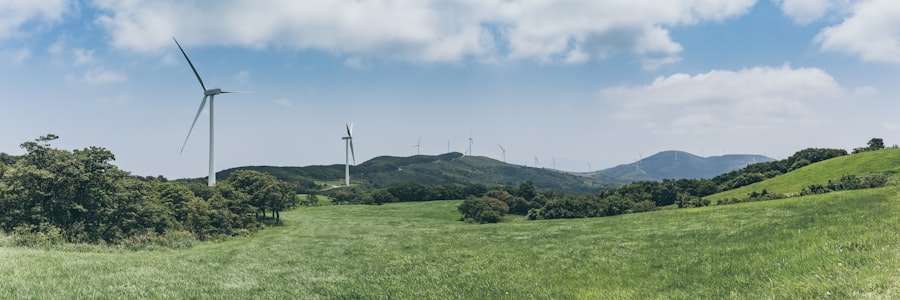The demand for sustainability jobs has been steadily increasing in recent years as companies and organizations recognize the importance of environmental conservation and sustainable practices. Growing concerns over climate change and resource depletion have created a need for professionals who can implement sustainable solutions in businesses and governments. This has led to increased job opportunities in sectors such as renewable energy, green building, waste management, and environmental consulting.
As global efforts towards sustainability intensify, the demand for individuals with expertise in this field is expected to continue rising. Additionally, increasing consumer awareness and demand for eco-friendly products and services have contributed to the growth of sustainability jobs. Companies face pressure to adopt sustainable practices and reduce their environmental impact to meet consumer expectations and maintain competitiveness.
This has created a need for professionals who can develop and implement sustainable strategies, as well as communicate sustainability efforts to consumers. Consequently, the demand for sustainability jobs is projected to grow as more companies prioritize environmental responsibility and seek to improve their sustainability performance.
Key Takeaways
- The demand for sustainability jobs is on the rise as companies and organizations prioritize environmental responsibility.
- There are various paths to a green career, including roles in renewable energy, sustainable agriculture, and environmental policy.
- Sustainability jobs have a positive impact on the environment by promoting conservation, reducing waste, and implementing eco-friendly practices.
- Skills and qualifications needed for green careers include knowledge of environmental issues, project management, and expertise in renewable energy technologies.
- Working in the sustainability industry offers benefits such as job satisfaction, the opportunity to make a positive impact, and potential for career growth.
- Some of the most in-demand sustainability jobs include sustainability manager, environmental engineer, and renewable energy technician.
- To pursue a career in sustainability, individuals can seek out relevant education and training, network with professionals in the field, and look for job opportunities with environmentally conscious companies and organizations.
The Different Paths to a Green Career
Education: A Foundation for Sustainability
One common route to a green career is through education, where individuals can obtain a degree in environmental science, sustainability, renewable energy, or a related field. A formal education in these areas can provide individuals with the knowledge and skills needed to understand environmental issues and develop sustainable solutions.
Specialized Programs and Certifications
Many universities and colleges offer specialized programs and courses in sustainability that can help individuals gain the expertise necessary for a career in the field. Additionally, many organizations offer certifications in areas such as LEED (Leadership in Energy and Environmental Design), renewable energy, sustainable business practices, and environmental management. These certifications can help individuals demonstrate their expertise and commitment to sustainability, making them more competitive in the job market.
Practical Skills and Knowledge
There are numerous training programs and workshops available that can provide individuals with practical skills and knowledge in specific areas of sustainability, such as energy efficiency, waste reduction, or sustainable agriculture. These programs can help individuals gain hands-on experience and stay up-to-date with the latest developments in the field.
The Impact of Sustainability Jobs on the Environment

Sustainability jobs have a significant impact on the environment by helping to reduce resource consumption, minimize waste, and mitigate the effects of climate change. Professionals working in sustainability play a crucial role in developing and implementing strategies that promote environmental conservation and reduce the ecological footprint of businesses and communities. For example, individuals working in renewable energy help to increase the use of clean energy sources such as solar, wind, and hydroelectric power, which reduces reliance on fossil fuels and lowers greenhouse gas emissions.
Furthermore, professionals in waste management and recycling contribute to the reduction of landfill waste and the conservation of natural resources by promoting recycling programs and sustainable waste disposal practices. Environmental consultants work with businesses and governments to assess their environmental impact and develop strategies for reducing pollution, conserving resources, and protecting ecosystems. Overall, sustainability jobs have a direct impact on the environment by promoting sustainable practices and helping to preserve natural resources for future generations.
The Skills and Qualifications Needed for Green Careers
Individuals pursuing green careers in sustainability require a diverse set of skills and qualifications to be successful in the field. Strong analytical and problem-solving skills are essential for identifying environmental issues and developing effective solutions. Additionally, individuals need to have a solid understanding of environmental science, ecology, and sustainable practices in order to address complex environmental challenges.
Communication skills are also crucial for effectively conveying sustainability initiatives to stakeholders and engaging with the public on environmental issues. Furthermore, individuals working in sustainability need to be knowledgeable about relevant regulations and policies related to environmental protection and resource management. Project management skills are important for overseeing sustainability initiatives and ensuring that they are implemented effectively.
Additionally, individuals may benefit from having technical skills in areas such as renewable energy systems, energy efficiency technologies, or environmental monitoring tools. Overall, a combination of technical expertise, environmental knowledge, communication skills, and a passion for sustainability is essential for success in green careers.
The Benefits of Working in the Sustainability Industry
Working in the sustainability industry offers numerous benefits for individuals who are passionate about environmental conservation and making a positive impact on the world. One of the key benefits is the opportunity to contribute to meaningful work that has a tangible impact on the environment. Individuals working in sustainability have the satisfaction of knowing that their efforts are helping to protect natural resources, reduce pollution, and promote sustainable practices that benefit both present and future generations.
Additionally, green careers often offer opportunities for professional growth and advancement as the demand for sustainability professionals continues to rise. Individuals working in the field have the chance to develop specialized expertise in areas such as renewable energy, green building design, sustainable agriculture, or environmental policy. Furthermore, many companies prioritize sustainability initiatives and offer competitive salaries and benefits to attract top talent in the field.
Working in sustainability also provides individuals with the opportunity to collaborate with like-minded professionals who share a passion for environmental conservation and sustainable development.
The Most In-Demand Sustainability Jobs

Renewable Energy Professionals
One of the most in-demand positions is that of a renewable energy engineer or technician. As the demand for clean energy sources continues to grow, renewable energy professionals work on designing, installing, and maintaining solar panels, wind turbines, and other clean energy technologies.
Sustainability Consultants and Environmental Experts
Another in-demand role is that of a sustainability consultant, who works with businesses and organizations to develop and implement sustainable strategies that reduce their environmental impact. Environmental scientists and specialists are also highly sought after for their expertise in assessing environmental issues, conducting research on pollution and climate change, and developing solutions for environmental conservation.
Green Building Design and Construction
Individuals with expertise in green building design and construction are in high demand as more companies seek to build environmentally friendly structures that minimize energy consumption and resource use.
Pursuing a Rewarding Career in Sustainability
Overall, there are numerous opportunities for individuals with skills and knowledge in sustainability to pursue rewarding careers that make a positive impact on the environment.
How to Find and Pursue a Career in Sustainability
Individuals interested in pursuing a career in sustainability can take several steps to find opportunities in the field and build a successful career. Networking with professionals already working in sustainability can provide valuable insights into job opportunities and industry trends. Attending industry events, conferences, and workshops can also help individuals connect with potential employers and gain knowledge about current developments in sustainability.
Additionally, seeking out internships or volunteer opportunities with organizations focused on environmental conservation can provide valuable hands-on experience and help individuals build a network of contacts in the field. Researching companies that prioritize sustainability initiatives can also help individuals identify potential employers who align with their values and career goals. Finally, pursuing additional education or certifications in areas such as renewable energy, green building design, or environmental management can help individuals stand out in the competitive job market for sustainability careers.
In conclusion, the growing demand for sustainability jobs reflects a global shift towards prioritizing environmental conservation and sustainable practices. Individuals pursuing green careers have various paths available to them through education, certifications, and training programs. The impact of sustainability jobs on the environment is significant, as professionals work towards reducing resource consumption, minimizing waste, and mitigating climate change effects.
To succeed in green careers, individuals need a diverse set of skills including analytical thinking, communication abilities, technical expertise, project management skills, knowledge of regulations/policies related to environmental protection/resource management, as well as passion for sustainability. Working in the sustainability industry offers numerous benefits including meaningful work with tangible impact on the environment, opportunities for professional growth/advancement, competitive salaries/benefits from companies prioritizing sustainability initiatives, as well as collaboration with like-minded professionals sharing passion for environmental conservation/sustainable development. Some of the most sought-after sustainability jobs include renewable energy engineer/technician, sustainability consultant, environmental scientist/specialist, green building design/construction expert.
To find/pursue a career in sustainability individuals should network with professionals already working in the field through industry events/conferences/workshops/internships/volunteer opportunities; research companies prioritizing sustainability initiatives; pursue additional education/certifications in areas such as renewable energy/green building design/environmental management.
If you’re interested in learning more about personal development for career success, check out this article on Careers Help. It provides valuable tips and techniques for improving your skills and advancing in your chosen field, which can be especially helpful for those pursuing green careers and sustainability jobs.
FAQs
What are green careers?
Green careers are jobs that focus on sustainability and environmental responsibility. These careers can be found in a variety of industries, including renewable energy, green building, environmental conservation, and sustainable agriculture.
Why are green careers on the rise?
Green careers are on the rise due to increasing awareness of environmental issues and the need for sustainable practices in business and industry. As companies and organizations strive to reduce their environmental impact, the demand for professionals with expertise in sustainability and green practices is growing.
What are some examples of green careers?
Examples of green careers include renewable energy technicians, environmental engineers, sustainability consultants, green building architects, conservation scientists, and sustainable agriculture specialists.
What skills are needed for green careers?
Skills needed for green careers may include knowledge of environmental science, renewable energy technologies, sustainable design and construction, environmental policy and regulations, and project management. Additionally, strong communication and problem-solving skills are often important in green careers.
How can someone prepare for a green career?
Individuals interested in pursuing a green career can prepare by obtaining relevant education and training, such as degrees in environmental science, sustainable design, or renewable energy. Gaining experience through internships or volunteer work in environmental organizations can also be beneficial. Additionally, staying informed about current trends and developments in sustainability is important for those pursuing green careers.



